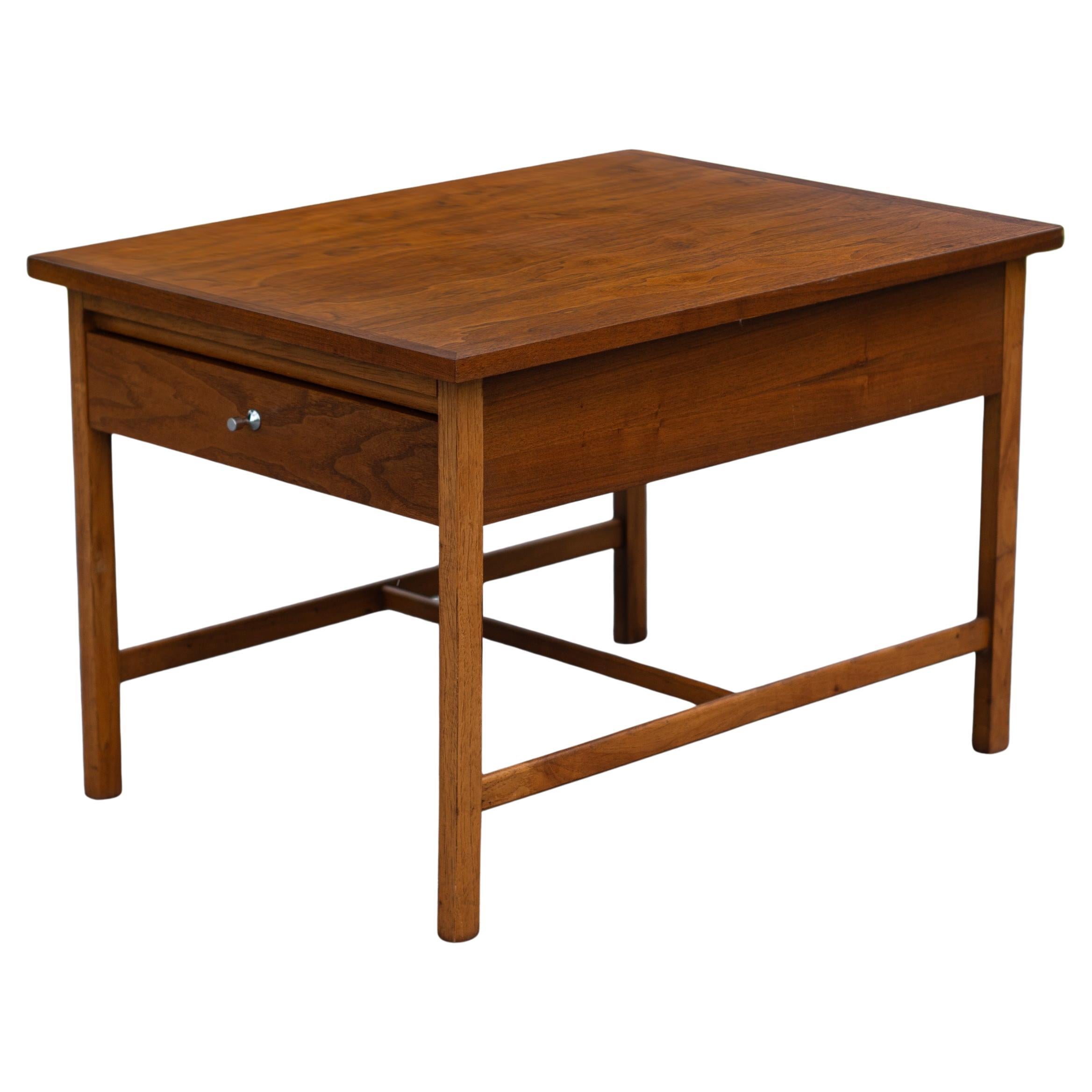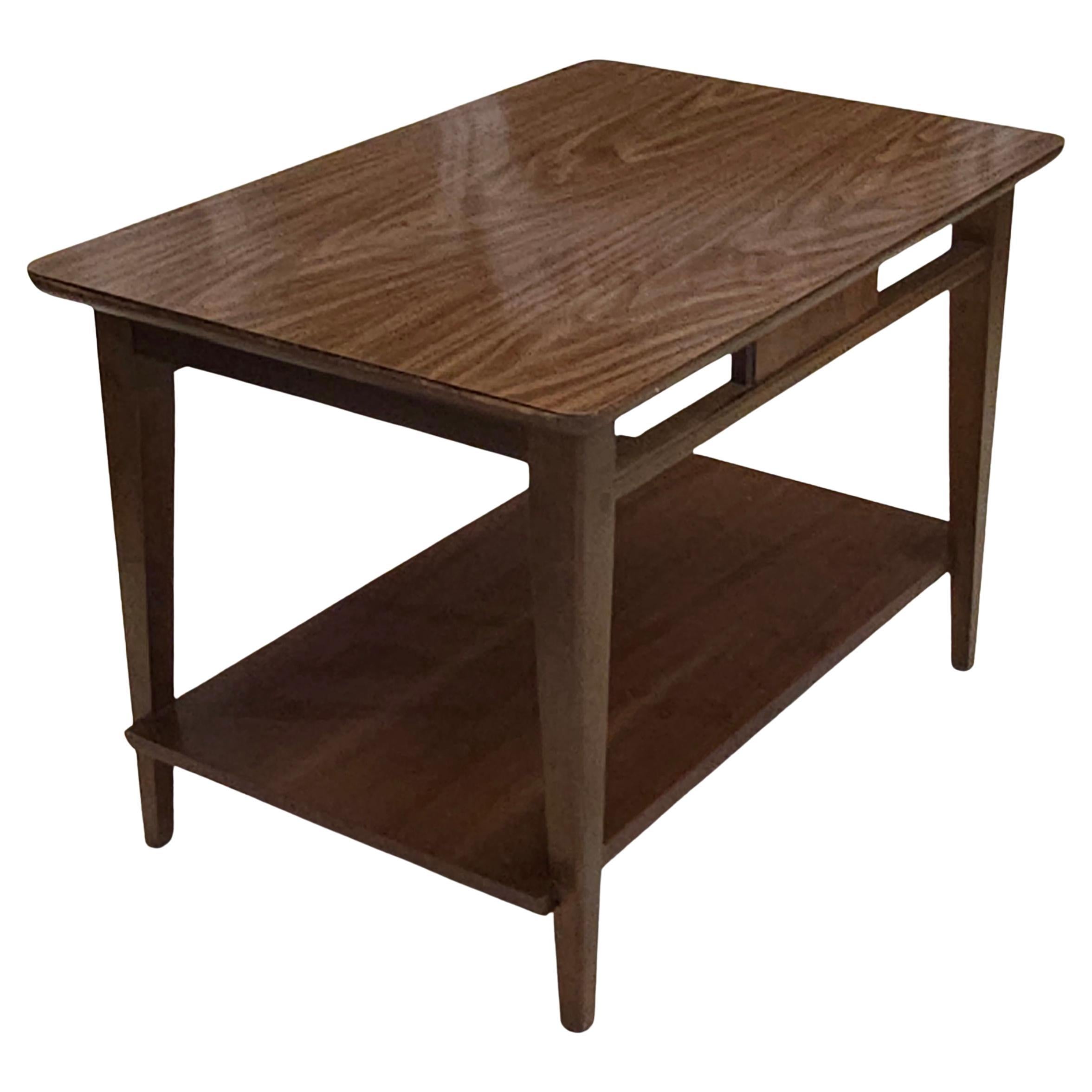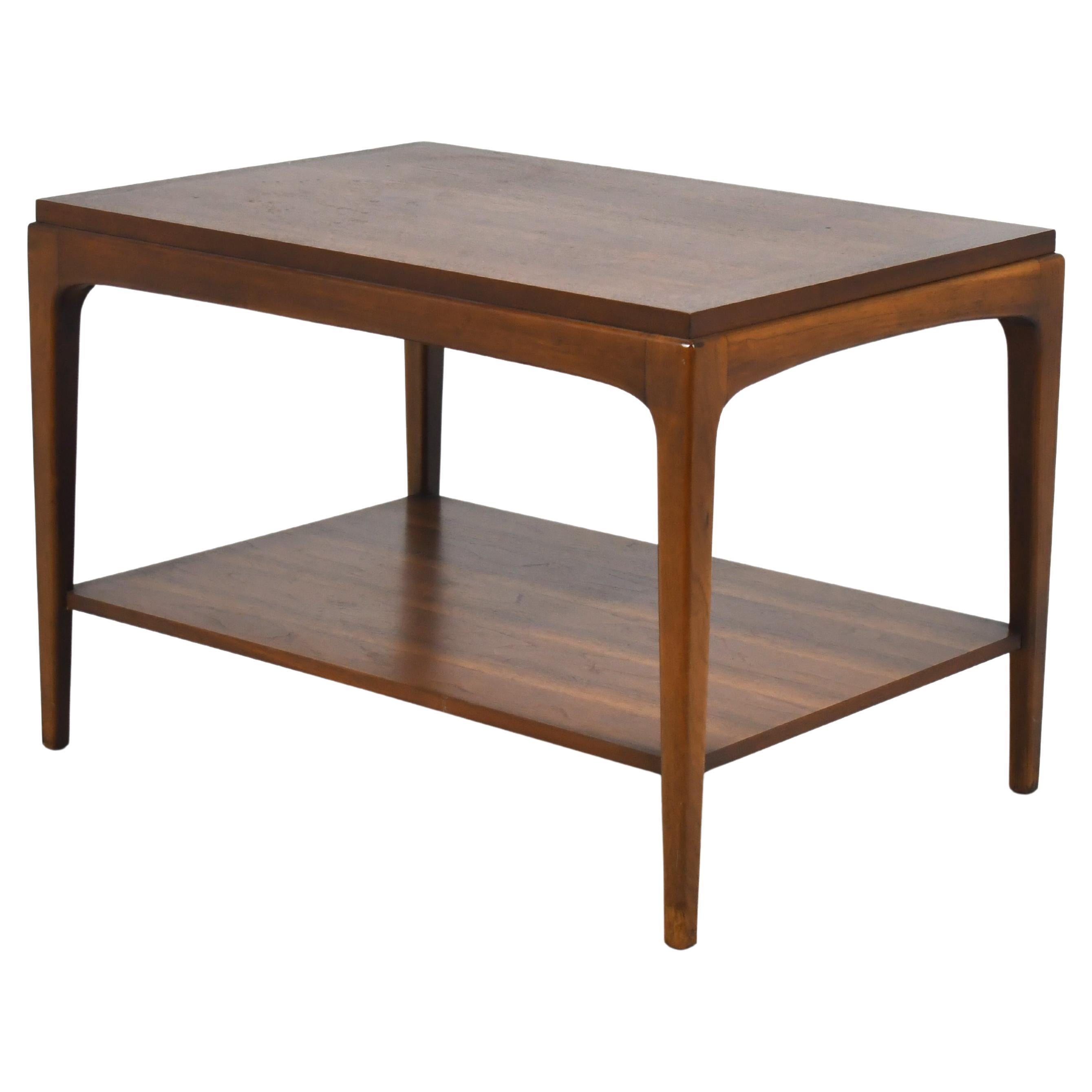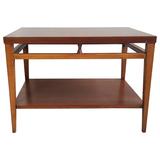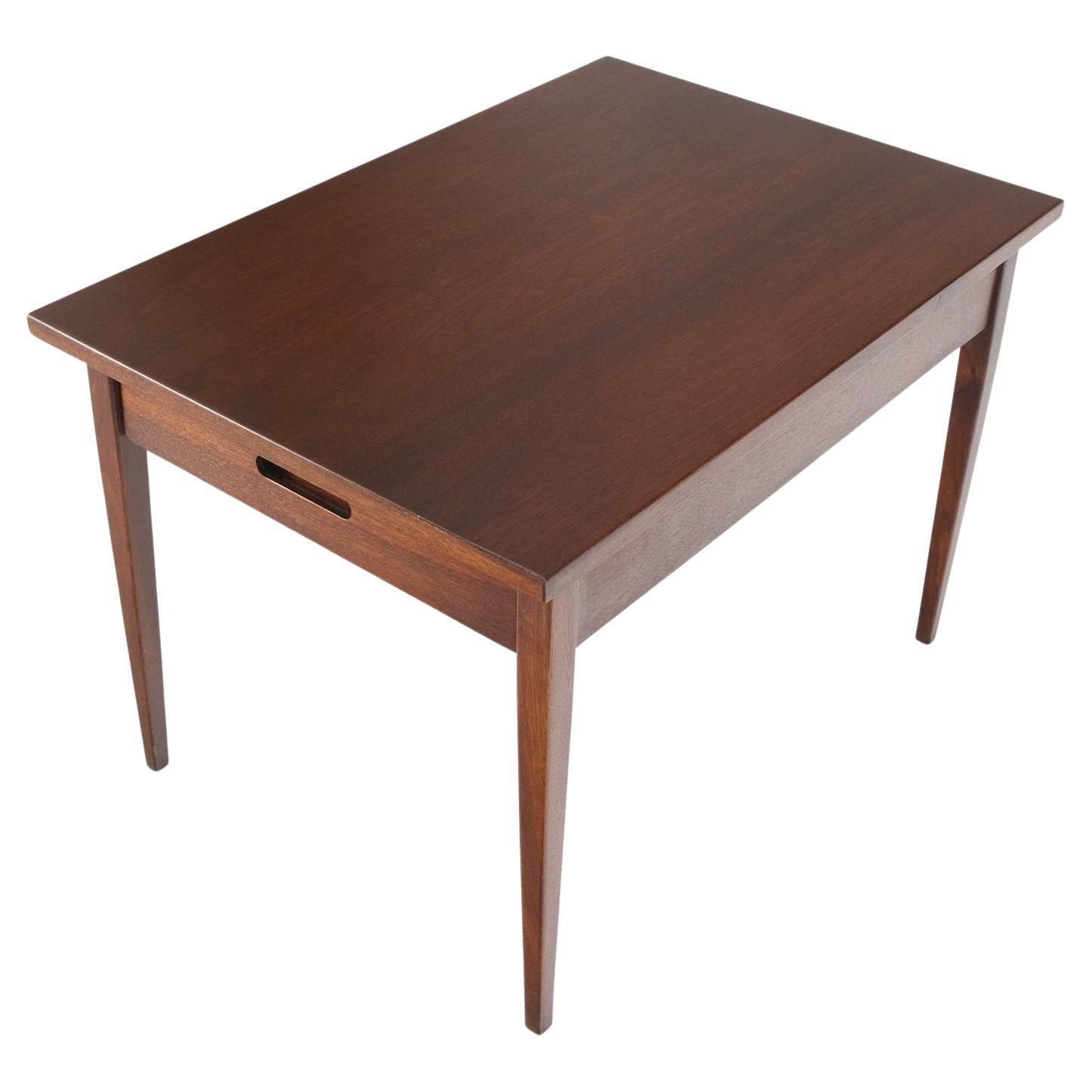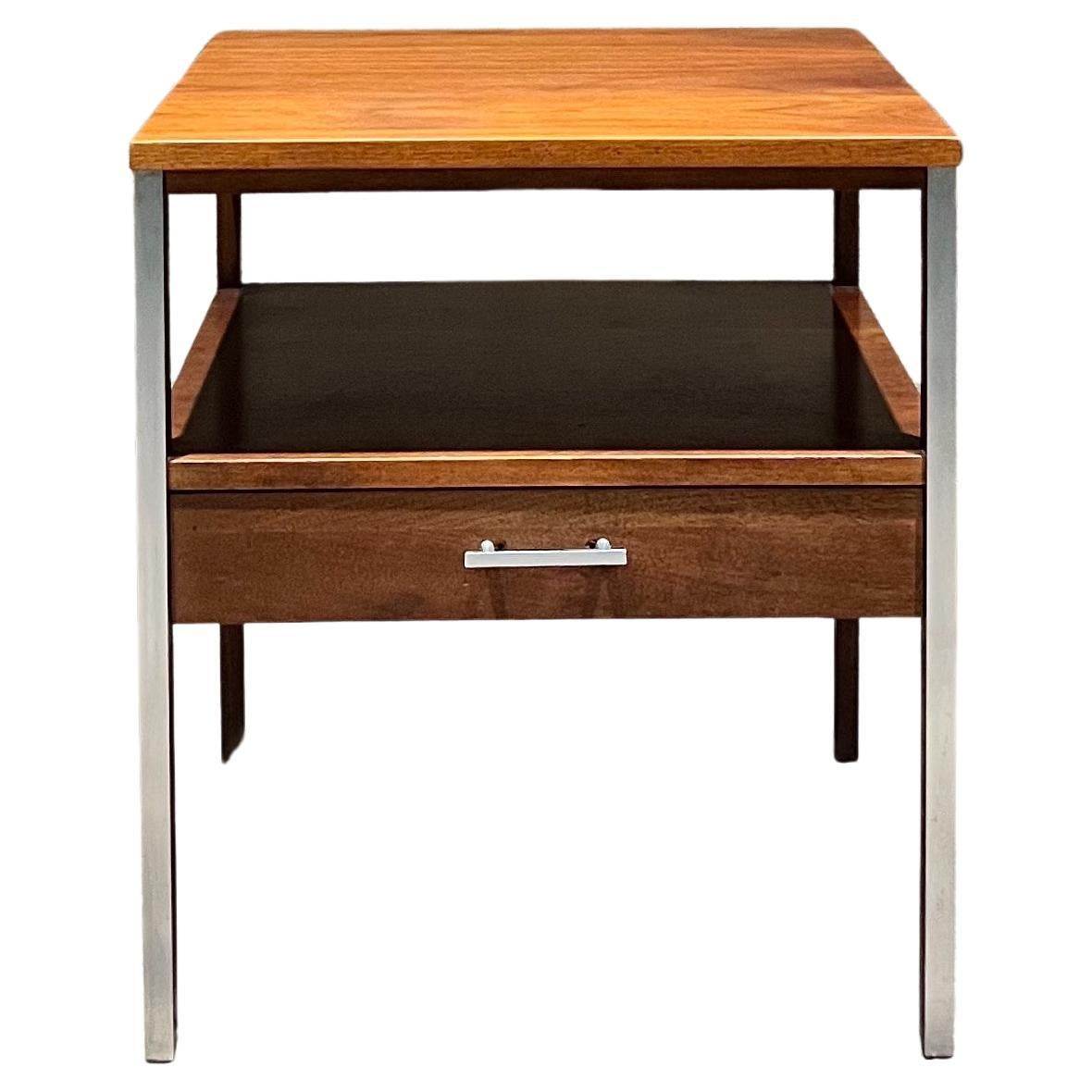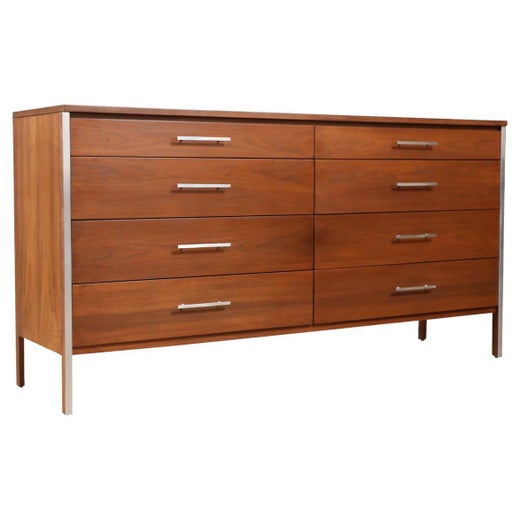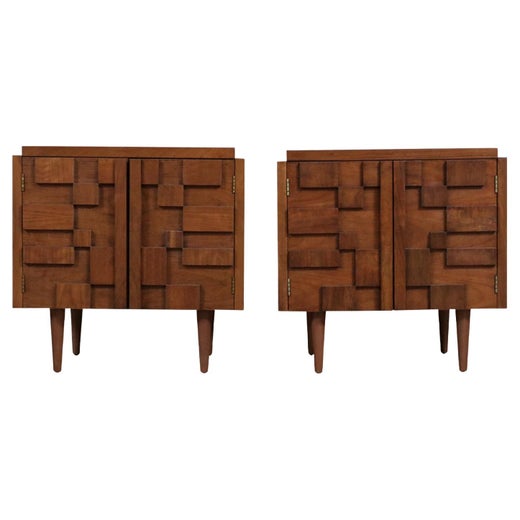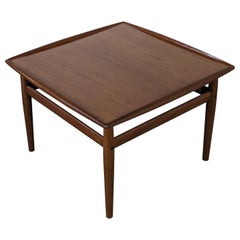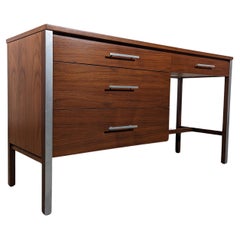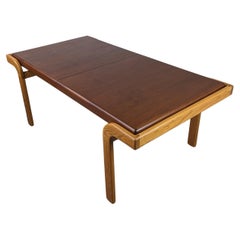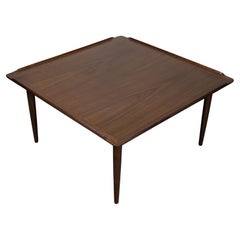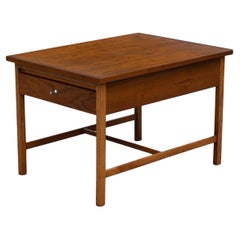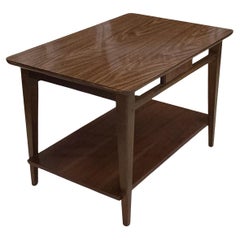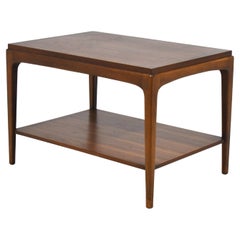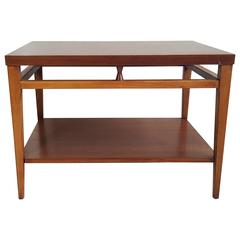Mid Century Modern Walnut Side/End Table By Paul McCobb for Lane, c1960s
About the Item
- Creator:Lane Furniture (Manufacturer),Paul McCobb (Designer)
- Dimensions:Height: 20.25 in (51.44 cm)Width: 22 in (55.88 cm)Depth: 30 in (76.2 cm)
- Style:Mid-Century Modern (Of the Period)
- Materials and Techniques:
- Place of Origin:
- Period:
- Date of Manufacture:1960s
- Condition:Refinished. Wear consistent with age and use. Excellent refinished condition.
- Seller Location:Chino Hills, CA
- Reference Number:1stDibs: LU7628238821732
Paul McCobb
The single aesthetic attribute of vintage Paul McCobb furniture is that the designer completely forsook ornament — his pieces have no flourishes. And yet, because they are honest — McCobb’s chairs, desks and dining tables are made of solid wood, usually maple or birch, often paired with frames and legs of wrought iron; the cabinets are traditionally scaled; the seating pieces have historic antecedents such as the Windsor chair — his mid-century modern work has warmth and presence.
You could call the Massachusetts-born McCobb a man of parts. As a furniture designer, his work combined the attributes of many of his now better-known peers.
Like the work of Bauhaus designers such as Ludwig Mies van der Rohe and Marcel Breuer, McCobb's furniture had purity of form and line. Like the designs of Florence Knoll and George Nelson and his associates, McCobb’s work was efficient and purposeful. And even like George Nakashima, he was adept at interpreting traditional forms, in particular those of chairs, for the 20th century.
More than any other designer besides Russel Wright, with his ubiquitous ceramic tableware, McCobb was arguably responsible for the introduction of modern design into middle-class American households — if for no other reason than that he designed the 1952 set for the original Today show.
McCobb, a repeat recipient of the Good Design Award from the Museum of Modern Art, also designed cohesive lines of furnishings, such as his best-known Planner Group, that gave homes an instant “look.” He designed for several companies, most notably Directional, which was home to McCobb’s Origami chair.
In 1949, in partnership with New York furniture salesman B.G. Mesberg, McCobb set up the Directional Furniture Company, a brand known to vintage mid-century modern furniture collectors everywhere. Directional opened its doors after McCobb created the high-end Directional Modern line of sofas distributed by the New York-based Modernage Company. Directional also produced designs by other legends such as Paul Evans and Vladimir Kagan.
As you can see from the offerings on 1stDibs, McCobb designs are the pin-striped suit, or the little black dress, of a decor: an essential.
Find vintage Paul McCobb credenzas, bookcases, nightstands and other furniture on 1stDibs.
Lane Furniture
When the first iteration of the Lane Furniture company began to produce its now-famous Lane cedar chests in the early 20th century, the family behind the brand was unsure of how successful they’d be, so they initially didn’t bother adding their name to the offerings.
The manufacturer was off to a modest start but the family was industrious: The Lanes were made up of farmers and contractors who’d built more than 30 miles of the Virginian railroad. They owned a cotton mill and purchased thousands of acres of land in Campbell County, Virginia, where the Virginian railroad was intended to cross the main line of the Southern Railway.
The Lanes hoped to start a town in this region of the state, and by 1912, streets for the town of Altavista had been laid out and utility lines were installed. In the spring of that year, John Lane purchased a defunct box factory at a bankruptcy auction. His son, Edward Hudson Lane, was tasked with the manufacturing of the cedar “hope” chests for which the Lane family would become known, even though the company was initially incorporated as the Standard Red Cedar Chest Company.
The Standard Red Cedar Chest Company struggled in its early days but introduced an assembly system at its small factory after securing a contract with the federal government to produce ammunition boxes made of pine during World War I. The company prospered and applied mass-production methods to its cedar-chest manufacturing after the war, and, in 1922, rebranding as the Lane Company, it implemented a national advertising campaign to market its products.
Ads tied the company’s strong cedar hope chests to romance. Anchored by copy that read “The gift that starts the home,” the campaign rendered a Lane cedar chest a necessary purchase for young women to store linens, clothing and keepsakes as they prepared to marry.
Wartime production during World War II had Lane producing aircraft parts. In the 1950s, the family-owned company began to branch out into manufacturing tables, bedroom pieces and other various furnishings for the entire home. Today, the brand’s vintage mid-century furniture — which includes the Perception, Tuxedo and Acclaim collections — is highly sought after.
Designed by Andre Bus, Lane’s Acclaim furniture collection of coffee tables, end tables, dressers and more has been compared to Drexel’s wildly popular Declaration series for its blend of traditional craftsmanship and the impeccably clean contours that are frequently associated with the best of mid-century modern design.
Ads for the Acclaim line suggested that it included “probably the best-selling table in the world.” Before its offerings expanded to include items for the bedroom and dining room, Lane was primarily known for its tables and case pieces — there are side tables, coffee tables and more created by Bus in the Acclaim collection, each sporting graceful tapered legs and dovetail inlays.
Later, during the 1960s, Lane offered handsome modular wall units created by the likes of Paul McCobb, an award-winning Massachusetts-born designer best known for his work at Directional.
The company was acquired by United Furniture Industries in 2017 and became particularly well-known among contemporary consumers for its upholstered furniture. In 2022 United abruptly closed and ceased operations at Lane.
Vintage Lane furniture is generally characterized by relatively neutral styles, which are versatile in different kinds of interiors, as well as good quality woods and careful manufacturing. All of these attributes have made Lane one of the most recognizable names in American furniture.
Browse storage cabinets, side tables and other vintage Lane furniture on 1stDibs.
- ShippingRetrieving quote...Shipping from: Vista, CA
- Return Policy
More From This Seller
View AllVintage 1960s Danish Mid-Century Modern Side Tables
Teak
Vintage 1960s American Mid-Century Modern Desks and Writing Tables
Brass
Vintage 1970s American Mid-Century Modern Dining Room Tables
Oak, Walnut
Vintage 1960s Danish Mid-Century Modern Coffee and Cocktail Tables
Teak
Vintage 1950s Mexican Mid-Century Modern End Tables
Mahogany
Vintage 1960s American Mid-Century Modern Coffee and Cocktail Tables
Walnut
You May Also Like
Vintage 1960s American Mid-Century Modern End Tables
Chrome
Mid-20th Century American Mid-Century Modern Side Tables
Formica, Walnut
Vintage 1960s American Mid-Century Modern Side Tables
Walnut
Mid-20th Century American Mid-Century Modern End Tables
Rosewood, Walnut
20th Century American Mid-Century Modern Center Tables
Walnut
Vintage 1960s American Mid-Century Modern Side Tables
Aluminum
